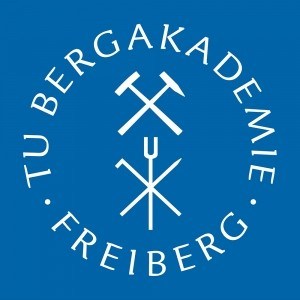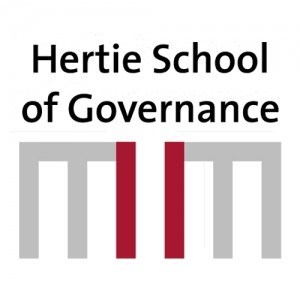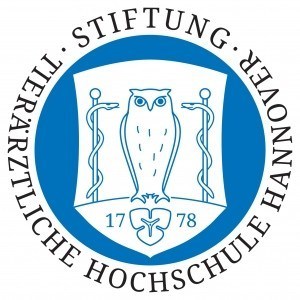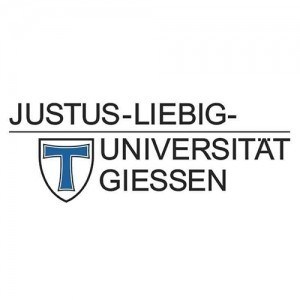The International Master in Groundwater Management at Freiberg University of Mining and Technology offers a comprehensive and interdisciplinary education designed to equip students with the essential skills and knowledge to address the complex challenges of groundwater resource management in a sustainable and environmentally responsible manner. The programme combines theoretical foundations with practical applications, emphasizing advanced understanding of hydrogeology, hydrology, environmental sciences, and geology, as well as the socio-economic aspects critical to effective groundwater governance. Students will explore topics such as aquifer characterization, groundwater modeling, water quality assessment, contamination mitigation, and the impacts of climate change on water resources. The curriculum is structured to foster analytical thinking, problem-solving capabilities, and decision-making skills through a blend of lectures, laboratory work, field studies, and project-based learning. Participants will also benefit from international cooperation and networking opportunities, facilitating a global perspective on groundwater issues and innovative management strategies. Taught predominantly in English, the programme attracts students from diverse backgrounds, creating a vibrant multicultural academic environment. Upon successful completion, graduates will be prepared for careers in academia, research institutions, governmental agencies, environmental consulting firms, and international organizations dedicated to water resource management. The university’s state-of-the-art facilities and collaboration with industry and governmental partners provide students with invaluable hands-on experience. By integrating scientific research, technological advancements, and practical approaches, the International Master in Groundwater Management aims to contribute to sustainable water resource utilization and to prepare future leaders committed to protecting vital groundwater sources for generations to come.
Educational organisation
The low student-to-teacher ratio ensures individual attention for each student. The condensed curriculum and the diverse educational backgrounds of the participants demand their full commitment to independent study. Project work, seminars and home assignments are included. Having successfully passed the exams in three semesters, students complete the programme with a Master's thesis (six months), covering a research area offered by the respective supervisors.Study abroad unit(s)
Participants may spend one or two semesters at partner universities of the TU Bergakademie Freiberg. A minimum of 60 credits have to be obtained at the TU Bergakademie Freiberg.Internships
Available on requestForms of assessment
Courses, lectures, presentations and training will be graded using the European credit point system. Exams may be oral or written. Prerequisites for some examinations are home assignments, reports and presentations by the students. A total of 120 ECTS points is required, of which 30 ECTS points are awarded for the Master's thesis. This consists of the written thesis and a public defence (presentation and discussion). Up to a maximum of 50% of the ECTS credits may be from other universities with ECTS credit point system in place.Course objectives
Successful candidates will be specialists, but will be able to adapt to various contexts and will be capable of successful cooperation. They will be able to independently lead research projects and assume leadership responsibility. Thus, students will be put in a position to independently evaluate environmental impact and risk assessment studies. Students will be trained to structure and organise public hearing procedures.Language requirements
Applicants must provide proof of sufficient English proficiency: TOEFL 550 (paper-based), 213 (computer-based), 79 (internet-based) or equivalent. This test can be waived if an applicant obtained their Bachelor degree in a country where English is the official language or English is the applicant's mother tongue.Academic requirements
Bachelor's degree in geoscience or a related fieldEnrolment fees
Approx. 90 EUR per semesterCosts of living
Living costs amount to 500-600 EUR per month, which includes accommodation, insurance, food, sports, and other expnses.Job opportunities
Many consulting firms located in Freiberg and its vicinity offer jobs and internships. The department also offers jobs related to research projects and teaching obligations. Postgraduate students may work as scientific/teaching assistants (wissenschaftliche Hilfskraft) at the university for a maximum of 80 hours per month. Students from abroad should enquire at the Registration Office for Foreign Nationals (Ausländerbehörde) to ascertain if they need a work permit for working at the university.Funding opportunities within the university
The "Deutschlandstipendium" is open to international students.http://tu-freiberg.de/en/economy/deutschlandstipendium
Arrival support
The International Centre provides support to new international students by assigning a mentor to each new student. A buddy is a German or international student who speaks German and English, sometimes French, Spanish or Russian. The mentor takes the newcomer through the first steps in Freiberg and at the university, i.e. picking the student up at the train station upon arrival, helping with enrolment, and with all other required administrative formalities (e.g. health care, opening a bank account, administrative formalities at city hall). Students who wish to participate need to register well in advance of their arrival (http://www.iuz.tu-freiberg.de).Services and support for international students
Intensive and individual professional advice is provided by the supervisors and coordinators of the programme. The International Centre offers support to all international students within the mentor programme, German language courses as well as information and consultation about studying and living in Freiberg.Student initiatives offer valuable cultural services for all students and PhD students at the TU Bergakademie Freiberg and support the intercultural exchange at the university. Their activities include the international weekend at the beginning of the winter semester, the regular international corner with topical events, and trips to interesting places in Germany.
Psychological counselling is also provided to all students in need.
Accommodation
Both dormitories and private accommodation are available. In Freiberg, many students choose to live in their own flats or to share flats as part of a WG (WG = "Wohngemeinschaft"). Flats are in many cases unfurnished, although built-in kitchens are usually provided.Rent for a single room is approx. 170-350 EUR per month. Often a deposit of two to three months' rent has to be paid. Most prices given by private landlords are quoted without the price for utilities such as heating, water and electricity. This rental pricing without services is called "Kaltmiete". The additional expense for utilities is usually about 150-200 EUR per month.
Private accommodation can be found on the internet at:
http://www.studenten-wg.de
http://www.wohnungsgesellschaft.de (Städtische Wohnungsgesellschaft Freiberg)
http://www.rwr.de (RWR Immobilien Freiberg)
http://www.studentenwohnheim-freiberg.de
Only a very limited number of rooms in the student hall of residence Max Kade Haus are available for doctoral students: http://www.studentenwerk.tu-freiberg.de
The International Centre offers support with finding accommodation on the private market (http://www.iuz.tu-freiberg.de)









